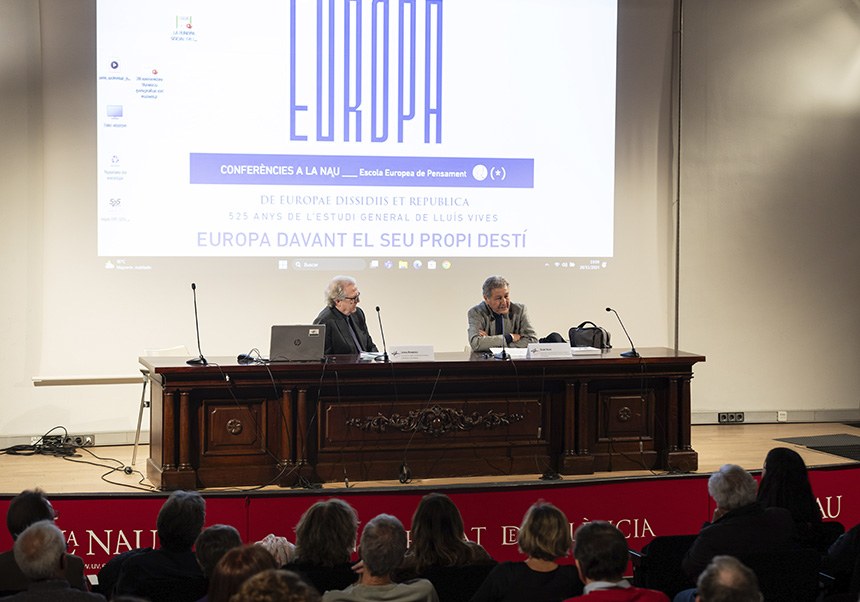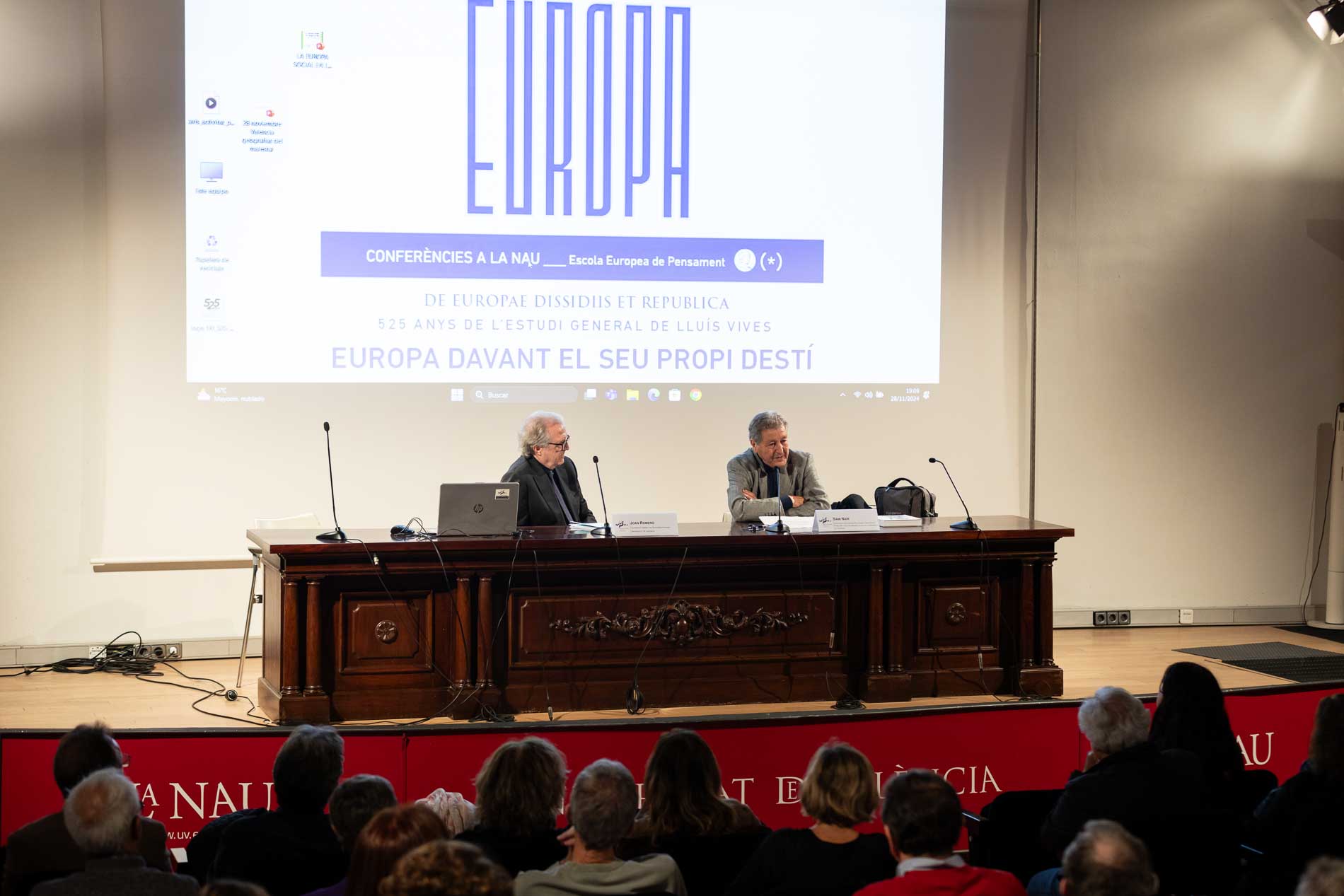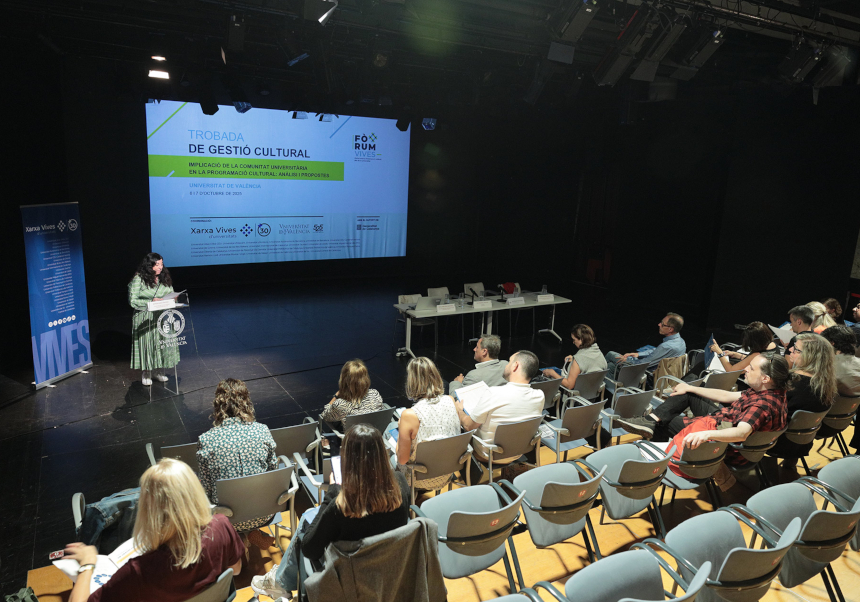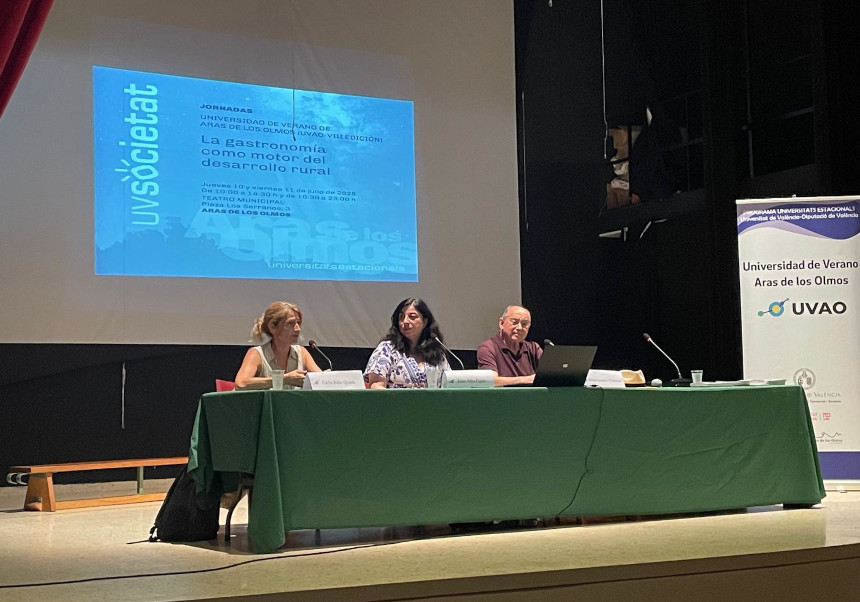UV brings together some of the best social sciences scientists to discuss the place of the EU next Thursday
- University Culture Service
- November 26th, 2024

Some of the best specialists in the social sciences will meet at the Centre Cultural La Nau of the Universitat de València (Aula Magna), next Thursday, 28 November, to reflect on the present and future of Europe. The Universitat de València has organised this seminar, on the occasion of the commemoration of the 525th anniversary of its creation and at the initiative of its principal Maria Vicenta Mestre. Professors Joan Romero and José Luis Villacañas have organised this conference with the participation of Emilio Lamo de Espinosa, José María Lassalle and the political scientist and doctor honoris causa of the UV, Samir Naïr, one of the most accredited voices of progressivism in Europe, advisor to Lionel Jospin's government (1997-1999) and member of the European Parliament until 2004.
The seminar, which will be broadcast live and is free with prior registration will be inaugurated at 9. 30 hours, by the principal, Maria Vicenta Mestre and then, at 10 am, the first conference will be held by Emilio Lamo de Espinosa, full-time university professor of Sociology at the Complutense University of Madrid and former president of the Real Instituto Elcano, under the title ‘Europe in a post-European world’. This will be followed by a debate on ‘Europe, artificial intelligence and authenticity as a value’ by José María Lassalle, ESADE professor and writer.
The morning programme will conclude (12.30 p.m.) with the conference ‘The possibility of a universalism without Eurocentrism’, by José Luís Villacañas, full-time university professor of Philosophy at the Complutense University of Madrid and one of the directors of this seminar.
The conference will resume at 16.00 h with a lecture by Antón Costas, full-time university professor of Economic Policy, University of Barcelona and President of the Economic and Social Council of Spain, who will speak on ‘The European Social Pillar. A lever for social inclusion and economic efficiency'.
One hour later, at 17.00 h, a dialogue will be held between Máriam Martínez-Bascuñán, Professor of Political Science at the Autonomous University of Madrid; Ángela González Montes, a leading national expert on the EU, who is part of the Senior Corps of Civil State Administrators and Anna López, Doctor of Science, on the ‘Geographies of Unrest and Electoral Geographies in Europe’. This table will be moderated by Joan Romero, full-time university professor of Humane Geography in the UV and co-director of the meeting.
The conference, which is part of the activities of the UV's Lluís Vives European School of Thought, will conclude at 19.00 h with the lecture ‘Europe at the crossroads’, given by Sami Naïr, professor of Political Sciences at the University of Paris VIII and doctor honoris causa from the Universitat de València.
Europe, facing its destiny
Political Europe and geopolitical Europe are facing some of the most difficult times since their creation in 1958 in a context that is very different from the one in which the common project was born. The risks arising from open conflicts on our borders, uncertainty, social fractures that have led to political fragmentation, the shift of the centre of gravity towards the Pacific, the consolidation of an increasingly multipolar world, the geopolitical and economic consequences that may arise from the arrival of Mr Trump to the presidency, relations with the Global South, the impulses of cultural and identity withdrawal, as well as the temptations of economic nationalism, will be some of the aspects that some of the most authoritative voices from different disciplines will address throughout this seminar, so symbolic for the Universitat de València.
Under the title ‘De Europae dissidiis et Republica. 525 anys de l'Estudi General de Lluís Vives. Europa davant el seu propi destí', the conference will bring together some of the best specialists in the social sciences, who will offer different perspectives on the place of the European Union in the current geopolitical context, now clearly post-European, the possibility that it can continue to be a reference of universal values, but far removed from Eurocentric visions, the challenges facing the European social model as the foundation of political Europe, the effects that globalisation and the social and cultural changes of recent decades have had on the new geographies of unrest and elections, and finally, the great task that awaits today's Europe in facing the challenges of the future that it must confront.
A University whose creation in 1499 coincided with a time when Europe was beginning an expansion that would continue for five centuries, but which now situates it in a context of a completely distinct new era.
More information:
Categories: Cultura , Conferències i debats , Escola Europea de Pensament Lluís Vives

















